by Lisa Cooke | Mar 2, 2016 | 01 What's New, Apps, Mobile, Premium Video
There’s a new video tutorial on genealogy apps for Genealogy Gems Premium website members: “How to Find Essential Genealogy Apps for Genealogists.”
What are the best apps for genealogy? The ones that accomplish whatever you want to GET DONE. Like:
- consulting
- working on your family tree
- translating an old church register
- digitally restoring an old photo.
- Having your mobile device read you an e-book or blog post (yes, you can do this for free).
But to make the most of the many mobile tools out there for the genealogist, you need to strategically look for them rather than hope you stumble across them. Because most of them aren’t conveniently marked “for the genealogist.”
A new 36-minute video tutorial by leading tech genealogy educator Lisa Louise Cooke shows you how to get the most out of your mobile device for genealogy. In “How to Find Essential Genealogy Apps for Genealogists (and 3 to Start Using Right Away)” she covers:
- How to identify mobile-friendly tasks you want to accomplish;
- Apps that every genealogist can enjoy right away;
- Knowing where to look for apps;
- Automating the process of finding apps; and
- How to keep from purchasing apps you don’t need.
Get the Book! 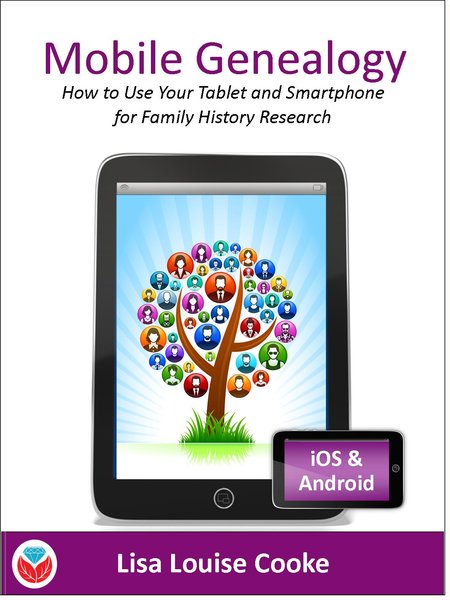
These tips are taken from hundreds of hours of research and testing Lisa put into her new book Mobile Genealogy: How to Use Your Tablet and Smartphone for Family History Research.
Save 10% off Mobile Genealogy
with Coupon code web10
Premium Membership
 The How to Find Essential Genealogy Apps for Genealogists video is one of nearly 30 full-length video tutorials (and an Evernote mini-series tutorial) that you will have access to as a Genealogy Gems Premium Member. To learn more about membership, click here.)
The How to Find Essential Genealogy Apps for Genealogists video is one of nearly 30 full-length video tutorials (and an Evernote mini-series tutorial) that you will have access to as a Genealogy Gems Premium Member. To learn more about membership, click here.)
More on Genealogy Apps and Mobile Genealogy
How to Use Your Mobile Device for Genealogy: Free Video
3 Tips for Getting the Most Out of Your Mobile Device
Tools to Highlight Your Great Genealogy Finds: Snagit and Skitch
by Lisa Cooke | Feb 10, 2020 | 01 What's New, Book Club |
After a long day of genealogical research, what could be more satisfying than curling up with a good book about genealogical research?! Nathan Dylan Goodwin’s new book The Sterling Affair promises a satisfying return journey into the life of forensic genealogist Morton Farrier.
(This article includes affiliate links. If you decide to pick up a copy of this book, using our links for which we will be compensated by the book seller helps support our ability to bring author Q&A’s like this to your screen. Thank you!)
Click here to purchase your copy of The Sterling Affair

The Sterling Affair by Nathan Dylan Goodwin
Goodwin sets the scene of his new book as follows:
“When an unannounced stranger comes calling at Morton Farrier’s front door, he finds himself faced with the most intriguing and confounding case of his career to-date as a forensic genealogist. He agrees to accept the contract to identify a man who had been secretly living under the name of his new client’s long-deceased brother.
Morton must use his range of resources and research skills to help him deconstruct this mysterious man’s life, ultimately leading him back into the murky world of 1950s international affairs of state.”
A Conversation with Author Nathan Dylan Goodwin
Don’t worry, we won’t be spoiling the exciting read you have ahead of you. Today I will be chatting with Nathan about his life as an author, his writing process, and how the main character, Morton Farrier, almost didn’t make it past the first book!
Lisa Louise Cooke: The Sterling Affair is your eighth novel in the Morton Farrier genealogical crime mystery series. When you first began writing the series did you imagine an eighth book? And today can you imagine even more?
Nathan: I literally had no concept that there would be so many books in the series! At first, it was written as a one-off, then I started to have ideas for two or three more.
I think when I wrote book three, The Orange Lilies, I knew that the series had plenty more scope, especially as DNA-testing was just beginning for genealogists, opening up a whole new world of potential storylines! As to the future of the series, I’m currently plotting books nine and ten. I don’t see an end to the series just yet!

Click the book image to order your copy.
Lisa Louise Cooke: I heard you speak at THE Genealogy Show conference in Birmingham England in 2019. In that presentation you told the audience that you almost killed off Morton at the end of the first book. I imagine you’re glad now that he survived. What exactly happened back then?
Nathan: Killing Morton would have been the most stupid thing I could have done!
I started writing Hiding the Past (the first book in the series) as part of my studies for a Master’s Degree in creative writing and I think I’d been reading a novel at the time, which went along the lines of ‘if you’re reading this then I’m dead’. I thought this angle might work for the first draft of my story but thankfully, as the book progressed, I was able to see several plotlines, which could continue into further stories.
I knew from the outset that I wanted the main character, Morton Farrier, to have been adopted and be totally unaware of his biological family, so there was plenty of scope there to continue that subplot in future books.
Lisa Louise Cooke: How has the advent of DNA testing changed the course of your writing?
Nathan: DNA-testing has completely changed the course of my writing—in a good way, I like to think! There are now so many more possibilities for Morton to solve his cases in different ways.
Morton took an Ancestry DNA test back in 2014 when it had not yet even become possible in the UK. He did what I had to do, which was to order one in the US and have a friend ship it over, then post it back to the US for testing and analysis!
From that point onwards, DNA has played an ever-increasing role in helping Morton to solve his cases. In the most recent book, The Sterling Affair, Morton uses a variety of real tools and websites which are familiar to genealogists.
Lisa Louise Cooke: When you start a book like The Sterling Affair, do you already have it well mapped out, or are there surprises even for you along the way as to the path it will take?
Nathan: I usually spend at least three months conducting research for the books. This involves reading, visiting record offices, libraries, churches, etc. Basically, anything which Morton does in the book, I do first.
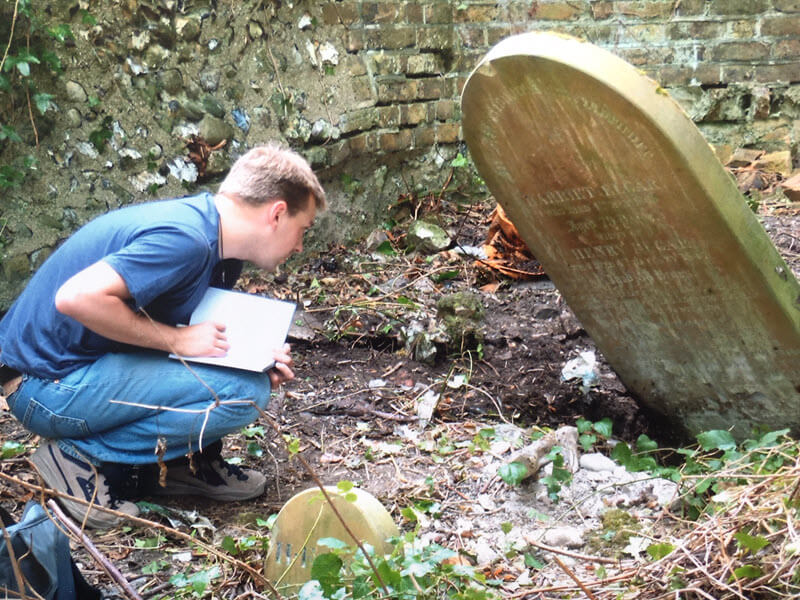
Photo courtesy of Nathan Dylan Goodwin
At the point when I actually start writing I probably have about 60% of the storyline mapped out. It’s a big cliché to say so, but for me the characters really do come to life and do things which I hadn’t anticipated. For the first few books I found it a little unnerving to be starting to write something that I didn’t know pretty well 100% what was going to happen, but now I trust myself and I know I’ll get to the end if I let the characters lead the way!
Lisa Louise Cooke: Where do you get your inspiration for the story lines in your books?
Nathan: My ideas come from a variety of sources, but never by actively searching for the next story; I just seem to stumble on a nugget of an idea, which I think could make for an interesting genealogical crime mystery and make a note of it! It can be a news story involving history or genealogy in some way, something I’ve picked up from a family history publication, or a Facebook group where people share their own genealogical mysteries.
Increasingly, the books have more real-life characters, plotlines and locations. For example, The Spyglass File, which is set on the frontline of Kent during the Battle of Britain, was loosely based on my grandmother’s story, whereby she gave birth to an illegitimate child in 1943, whom she put up for adoption whilst my grandfather was a POW in Thailand.

Nathan’s Grandmother – Photo courtesy of Nathan Dylan Goodwin.
The Sterling Affair is based on nefarious goings-on during the 1950s and involves real undercover MI6 operations and real spies. The idea for this story came from the National Archives newsletter, which mentioned the release of some previously closed MI6 records. This got me thinking about someone trying to conceal their real identity and Morton having to use his skills to work out who he might be!
Lisa Louise Cooke: For those new to your books, they will see that this is the eighth novel in the series and wonder if it’s too late to join in. Can the book be read and enjoyed as a stand-alone novel?
Nathan: I always say that the books can be read as a stand-alone, but you would be missing out on Morton’s backstory. However, with The Sterling Affair there is not too much given away about his own past, so, of all of the stories, this is the most readable out of sequence!
Lisa Louise Cooke: When you’re not writing about Morton Farrier, what is your favorite way to spend free time?
Nathan: I’m not sure what you mean by ‘free time’!? Obviously, I spend a lot of time on genealogy. I’ve been researching my own family for thirty years now and I feel very fortunate to be able to combine my two loves of writing and genealogy. Aside from that, I enjoy reading, running, skiing, theatre and spending time with my family, friends and dog.
Lisa Louise Cooke: You’re a man of many talents. Do you have other “wishlist” projects you yearn to do in addition to writing?
Nathan: I enjoy photography and would like to develop that at some point in the future and I really would like to take a watercolour painting class at some point. I just need some of that free time you mentioned!

A man of many talents – Photography by Nathan Dylan Goodwin
Lisa Louise Cooke: I’ll be at RootsTech again this year. Will we see you there?
Nathan: I shall have a booth at RootsTech SLC this year signing books and also at THE Genealogy Show in Birmingham once again. So people can come and say hello and let me know what they think of my stories. I love chatting with my readers!
Hear More from Nathan Dylan Goodwin
Read and hear more from genealogical author Nathan Dylan Goodwin in the following exclusive Genealogy Gems content:
- Genealogy Gems Podcast episode 180 features an Interview with Nathan Dylan Goodwin author of The Lost Ancestor.
- Genealogy Gems Podcast episode 179 features a discussion of The Lost Ancestor by Nathan Dylan Goodwin.
- Interview with Nathan Dylan Goodwin: Genealogy Gems Book Club – In this article from 2015 Nathan discusses the second book in the Morton Farrier series, The Lost Ancestor.
- Listen to the full-length Genealogy Gems Book Club interview with Nathan Dylan Goodwin, as he discusses The Lost Ancestor (The Forensic Genealogist) in Genealogy Gems Premium Podcast episode 125 (exclusive for Genealogy Gems Premium Members.)
- Listen to our interview with Nathan Dylan Goodwin about his The Wicked Trade and The Suffragette’s Secret in Genealogy Gems Premium Podcast episode 159 (exclusive for Genealogy Gems Premium Members.
Catch up on the Morton Farrier
Learn more about the entire book series featuring Morton Farrier here in this Genealogy Gems Book Club article.
by Lisa Cooke | Mar 4, 2015 | 01 What's New, Google, Listeners & Readers, Maps, Records & databases, Research Skills
 Recently I heard from Sue Neale, whose story offers a compelling reason to use Google Scholar for genealogy research! Read it below–then I’ll tell you a little more about Google Scholar.
Recently I heard from Sue Neale, whose story offers a compelling reason to use Google Scholar for genealogy research! Read it below–then I’ll tell you a little more about Google Scholar.
“I’ve been using computers for genealogy research (among other things) for about 30 years and am pretty good at finding most anything on the internet whether it pertains to genealogy or something else. It’s a continuous learning experience because computer, the internet and genealogy on the internet are always changing and updating.
[After hearing your seminars at RootsTech 2015], I tried out a couple of Google searches for my husband’s 3rd great-grandfather Silas Fletcher. Silas lived on Indian Key in the Florida Keys in the early 1820s.
My husband and I and our son visited Indian Key several years ago and the young lady who took us out in the boat had actually written her college thesis on Silas! Of course, we didn’t think to get her name or any other information. So I Googled “scholar paper Silas Fletcher’ and the first item on the search turned out to be her thesis!
I also found a second thesis on Indian Key and a research paper a third person had written–and they both contained information on Silas. In the footnotes I found references to deed books (book number and page number) that contained statements written by Silas, his wife Avis, their daughter Abigail and Mike’s 2nd great grandfather William H. Fletcher about their lives and movements in the Florida Keys.
With that information I went to Familysearch.org and found the deed books I needed for Monroe County. I was able to go find their statements very easily instead of having to ‘browse’ through the books on the off-chance I would find something (which I do if I don’t know the exact book where the record would be).
I can hardly wait to try out the rest of what I learned at your seminars to see what else I can find!”
Sue’s experience is a great example of using Google to dig for your family history. One little-known feature on Google is Google Scholar, which would help Sue and anyone else more easily find material like what she describes: doctoral dissertations, theses, academic papers and more. Your keyword searches in Google Scholar will target results from academic publishers, universities, professional societies and more.

Though scholarly literature gets a bad rap sometimes for being boring or highbrow, they do something genealogists love: THEY CITE SOURCES. Sue cleverly read the footnotes of the materials she found and they led her right to a key source she needed.
Here’s another resource she could find using the details found on Google Scholar in a Google Image search: a map of his community!

My newly-updated, revised book The 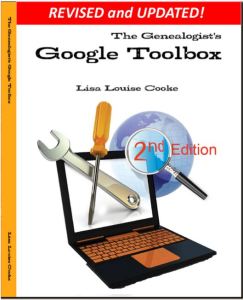 Genealogist’s Google Toolbox has an all-new chapter on using Google Scholar. Among other things, I show you advanced search strategies and how to use Google Alerts with Google Scholar for continuous updates on your favorite search results. Click here
Genealogist’s Google Toolbox has an all-new chapter on using Google Scholar. Among other things, I show you advanced search strategies and how to use Google Alerts with Google Scholar for continuous updates on your favorite search results. Click here
by Lisa Cooke | Feb 24, 2017 | 01 What's New, Records & databases |
Find your Abuela (the Spanish word for Grandma) in a wide variety of Catholic Church records for Mexican genealogy at FamilySearch. Also in new and updated genealogical records, collections from Norfolk, England; Victoria, Australia; and Quebec, Canada.
Mexico – Church Records
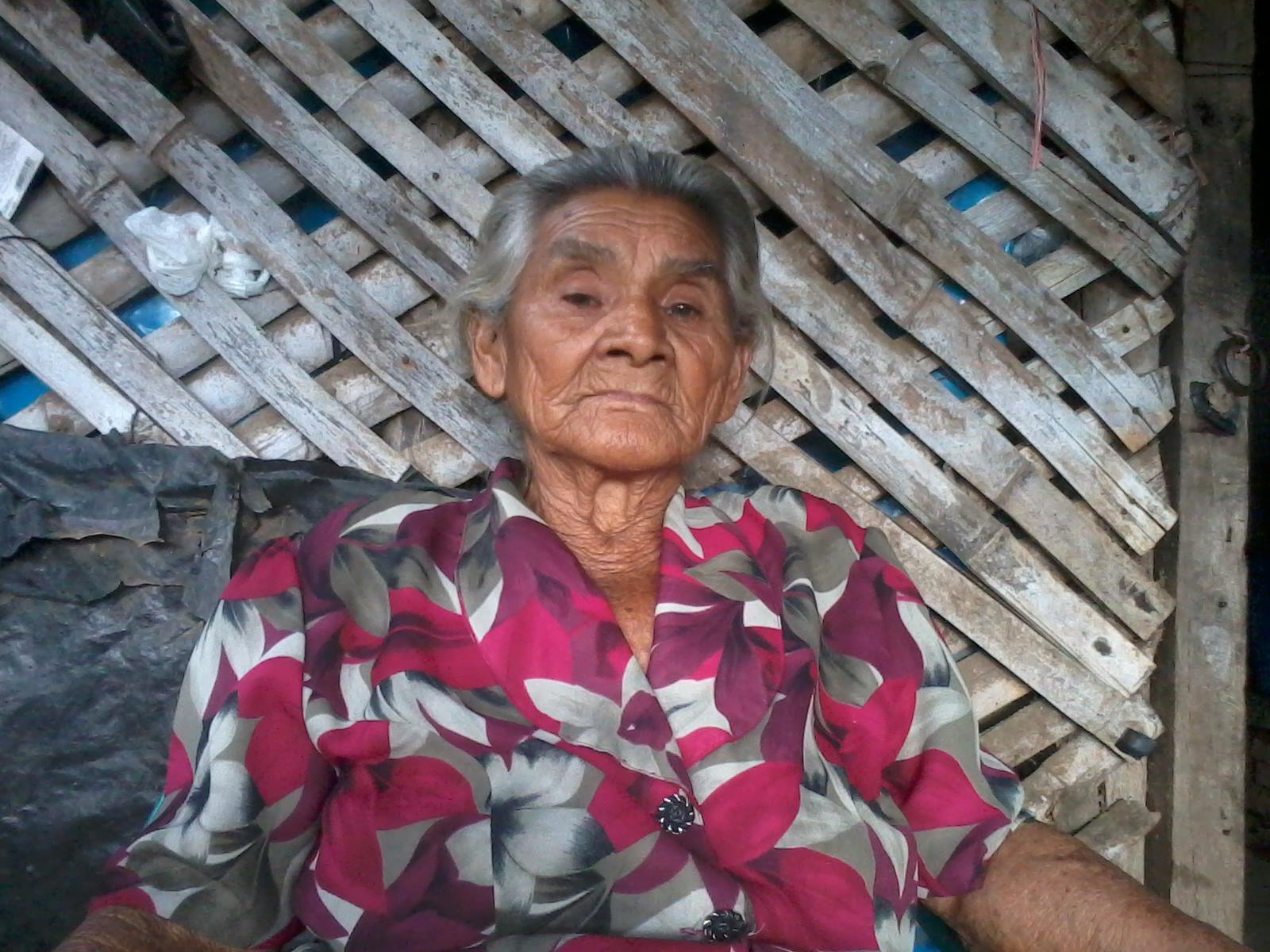
Abuela Francisca Ramos. Photo used with permission from the family.
FamilySearch has updated and added thousands of new Catholic church records in their Mexican genealogy databases. These church records cover many areas of Mexico, but in particular, the Hidalgo, Puebla, Jalisco, and Guanajuato databases have all reached over 1 million records. The years covered will vary, but the earliest records are from the 1500s and as recent as the 1970s.
These Catholic church records include baptismal records, marriage records, deaths, and other miscellaneous records that may contain valuable genealogical data for your ancestors. Check out the following databases for Mexican genealogy below:
England – Norfolk – Church Records
Several collections for Norfolk, England have been updated at Findmypast this week. Among them are first,
Norfolk Bishop’s Transcripts Baptisms 1685-1941. Norfolk Bishop’s transcripts for baptisms contain over 647,000 records. Each entry includes an image of the original document and a transcript of the vital details. The amount of information found in the transcript will depend on the age and condition of the original document. Most will include a name, baptism year, baptism place, and the names of parent’s. Images may reveal additional information such as your ancestor’s birth date, father’s occupation, and the name of the officiating minister.
The second database is titled, Norfolk Bishop’s Transcripts Marriages 1685-1941 and contains over 157,000 records. Each record includes a transcript and may include the birth year, date of marriage, place of marriage, and the name of their spouse as well as an image of the original document.
Thirdly, the Norfolk Bishop’s Transcripts Burials 1685-1941 collection will allow you to search over 434,000 Bishop’s transcripts of Norfolk burials to discover your ancestor’s final resting place. Transcripts will also reveal when they died and their age at death. Images of original documents may reveal additional information such as the name of the minister who performed the ceremony, your ancestor’s date of death and, occasionally, their cause of death.
Finally, the Norfolk Electoral Registers 1832-1915 containing over 4.5 million records may be just want you are looking for. Electoral registers were first created in 1832. Every year, a new electoral register was created to list the name of every individual eligible to vote. Voting was closely linked to the possession of property; therefore, the registers described the type of property owned or rented by the individual.
Electoral registers are an invaluable resource to trace your ancestors between the census years. Each entry in the Norfolk Electoral Registers 1832-1915 will include an image of the original register and a transcript of the facts listed. Transcripts will list your ancestor’s name, the place they registered, the district and the year they were registered. Images will provide additional information such as you’re their address and the type of property they owned or rented.
Australia – Victoria – Birth Records
Also at Findmypast, over 104,000 records have been added to the Victoria Births collection. These civil registration records may reveal your ancestors birth place, birth year, parent’s names and registration number. The entire collection now contains over 1.9 million records spanning the years 1837 t0 1917.
England & Scotland – Newspapers
Over 1.6 million articles and 13 brand new titles have been added to Findmypast’s collection of historic British Newspapers. The new additions cover the North West and South East of England, a number of Scottish counties, Nottinghamshire, and Bournemouth. The new Scottish titles include the Haddingtonshire Courier, Linlithgowshire Gazette, Ross-shire Journal, Rothesay Chronicle, Kinross-shire Advertiser, Peeblesshire Advertiser, and the Scottish Referee.
Canada – Quebec – Various Record Collections
The Drouin Institute has been in the genealogy business for over a hundred years. The Drouin Collection, which is available on Ancestry as well as on
GenealogyQuebec.com, was microfilmed in the 1940s and digitized in the 2000s by the Institute. The Drouin Collection contains the civil copy of all
parish registers (baptism, marriage, and burial records) from Quebec from 1621 to the 1940s. It is just one of many of the collections you will find from the Drouin Institute.
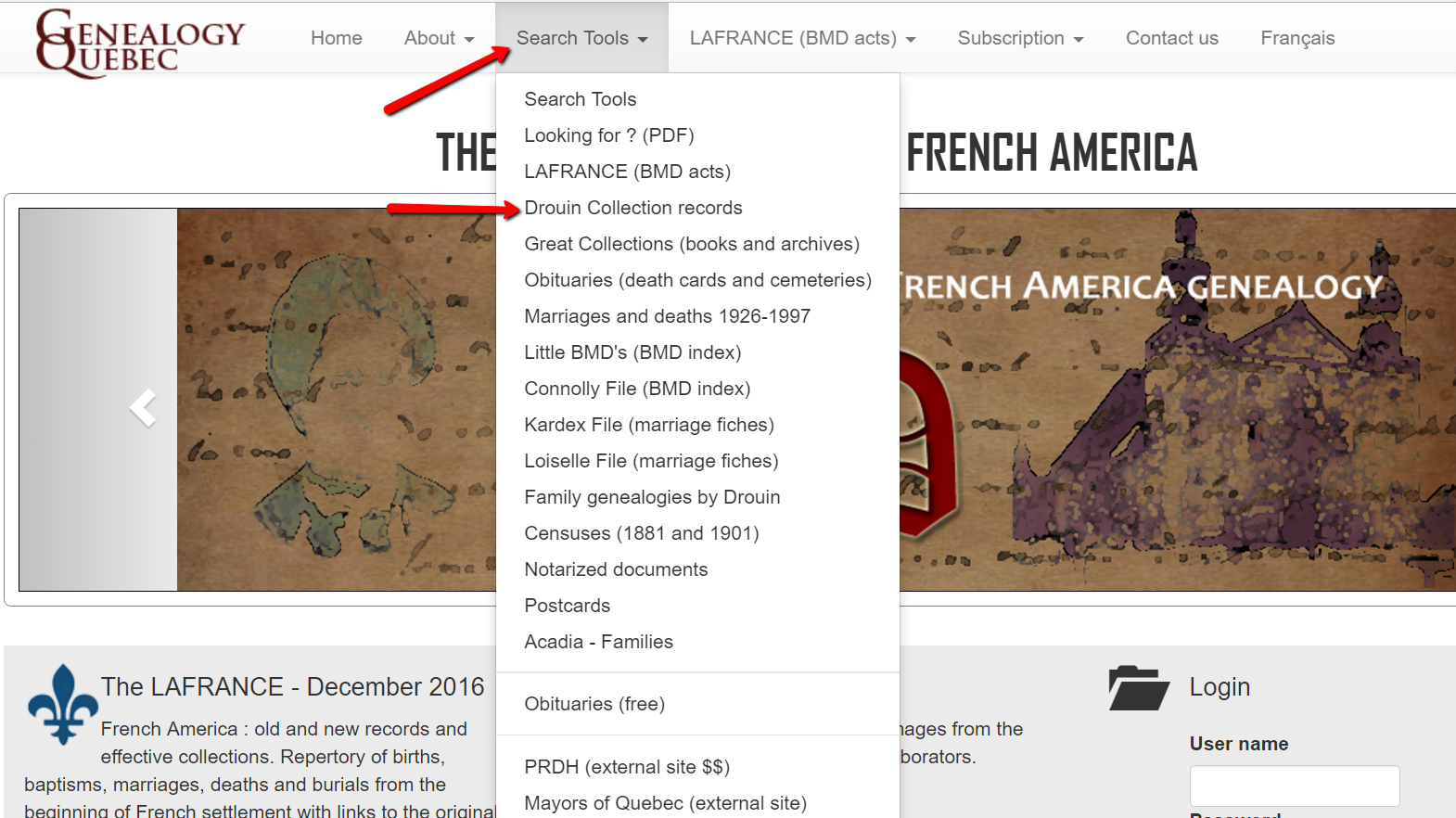
In total,
GenealogyQuebec.com offers many databases to research and reaches near 43 million images and files.
To access the Drouin Institute record collections, you will need to visit GenealogyQuebec.com. It is subscription based website. Subscription information can be viewed here.
LAFRANCE
The LAFRANCE is the most popular and comprehensive tool available at GenealogyQuebec.com. It is a very detailed, high quality index of the Drouin Collection, and also provides the original document. Here is an example of what the LAFRANCE looks like from our users’ perspective:
Currently, the LAFRANCE covers the entirety of the 1621 – 1849 period for Catholic baptisms and burials, as well as, the 1621-1916 period for Catholic marriages. In addition, the LAFRANCE covers the 1760 – 1849 period for Protestant marriages.
The LAFRANCE’s index is particularly valuable and appreciated by English speakers, as it negates the need to read and understand French in order to obtain all the relevant information from a record.
WWI Holdings
The Library of Congress has launched a comprehensive portal to its extensive WWI holdings. This one-stop portal is designed to help you search WWI subject material with ease. Search things like propaganda posters, letters, diaries, newspapers, and more. It is a wonderful site for not only the genealogist, but the avid historian as well.
More on Mexican Genealogy
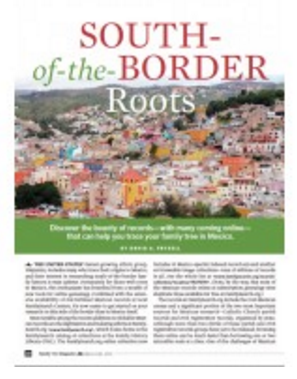 The Mexican Genealogy Guide by David A. Fryxell from Family Tree Magazine will help you discover the bounty of records in Mexico. This digital download will help you understand naming practices, pinpoint ancestral whereabouts, and how to best navigate church records there.
The Mexican Genealogy Guide by David A. Fryxell from Family Tree Magazine will help you discover the bounty of records in Mexico. This digital download will help you understand naming practices, pinpoint ancestral whereabouts, and how to best navigate church records there.
Disclosure: This article contains affiliate links and Genealogy Gems will be compensated if you make a purchase after clicking on these links (at no additional cost to you). Thank you for supporting Genealogy Gems!



 The How to Find Essential Genealogy Apps for Genealogists video is one of nearly 30 full-length video tutorials (and an Evernote mini-series tutorial) that you will have access to as a Genealogy Gems Premium Member. To learn more about membership, click here.)
The How to Find Essential Genealogy Apps for Genealogists video is one of nearly 30 full-length video tutorials (and an Evernote mini-series tutorial) that you will have access to as a Genealogy Gems Premium Member. To learn more about membership, click here.)





 Recently I heard from Sue Neale, whose story offers a compelling reason to use Google Scholar for genealogy research! Read it below–then I’ll tell you a little more about Google Scholar.
Recently I heard from Sue Neale, whose story offers a compelling reason to use Google Scholar for genealogy research! Read it below–then I’ll tell you a little more about Google Scholar.


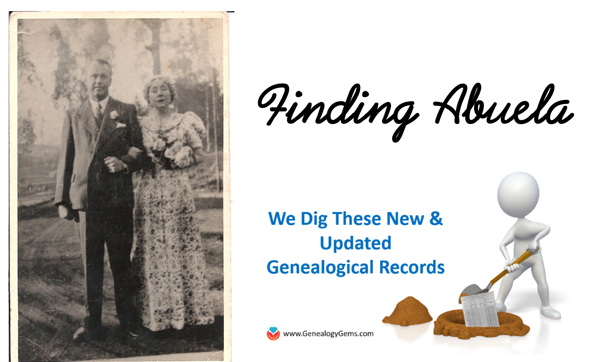


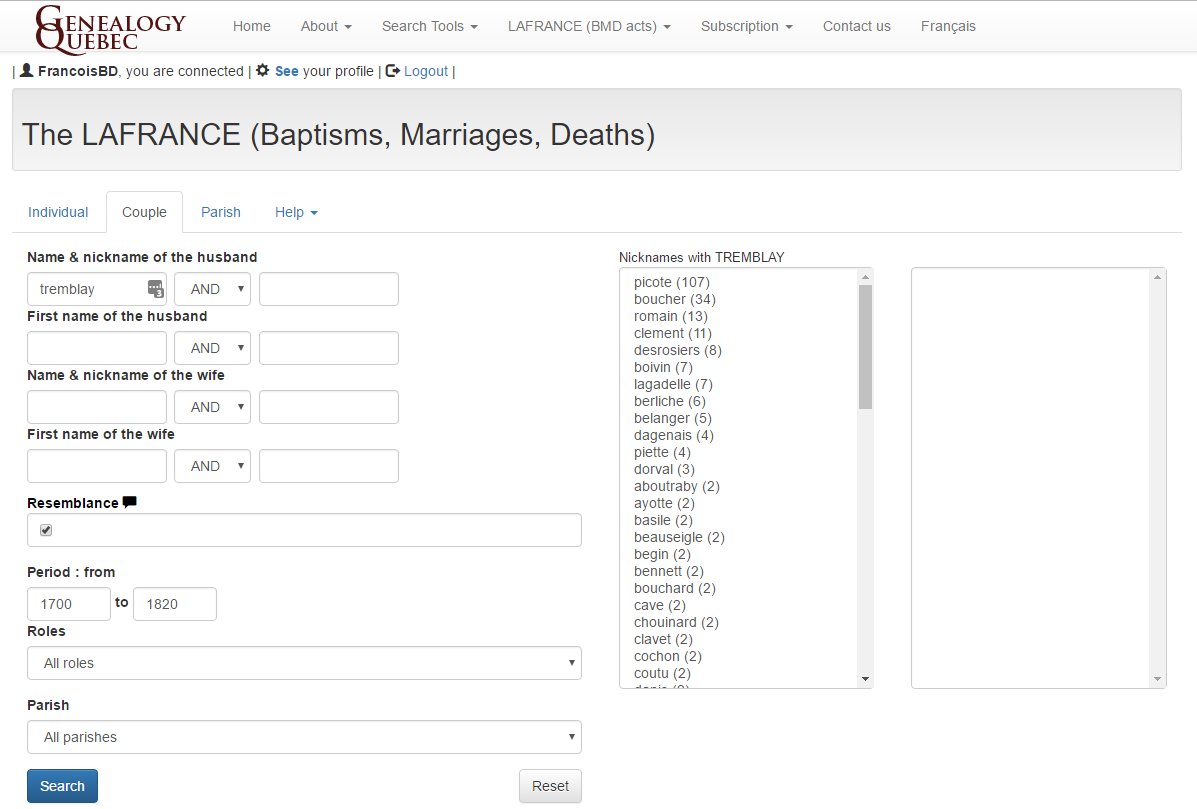
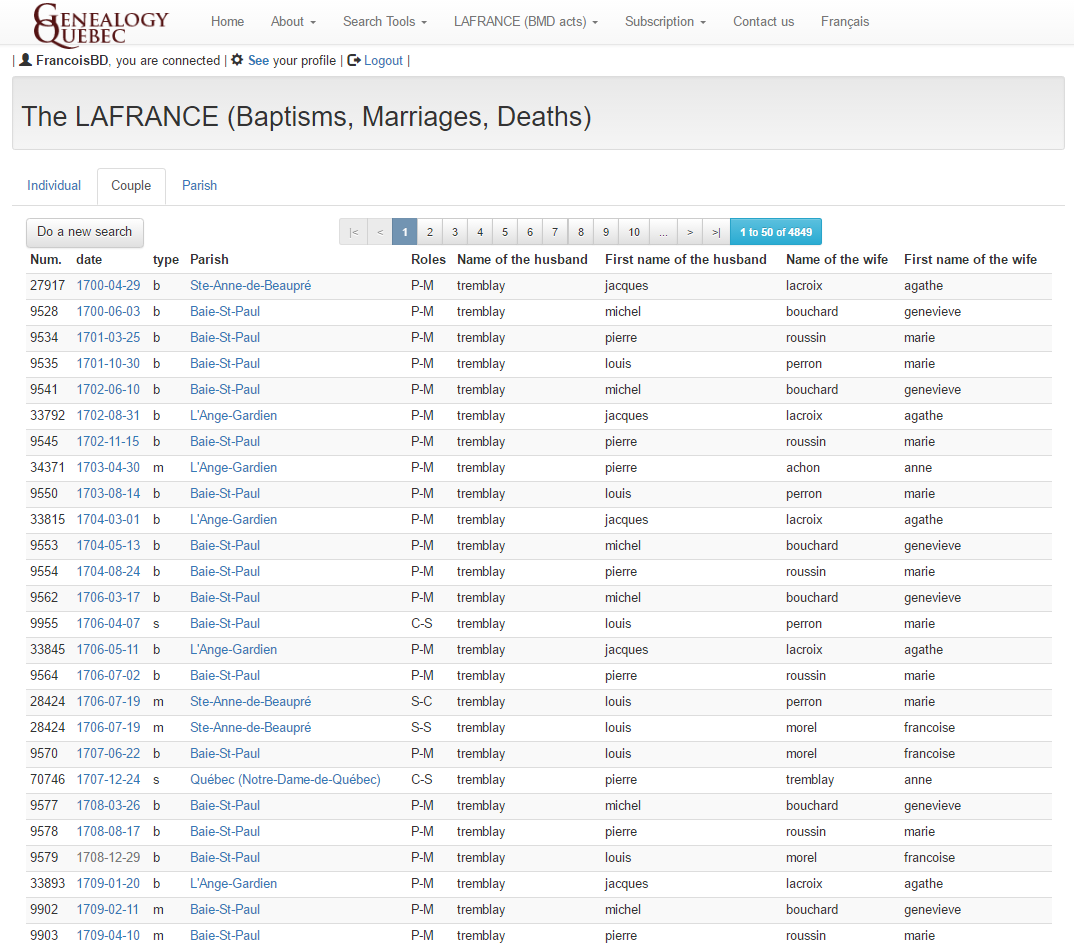
 The Mexican Genealogy Guide by David A. Fryxell from Family Tree Magazine will help you discover the bounty of records in Mexico. This digital download will help you understand naming practices, pinpoint ancestral whereabouts, and how to best navigate church records there.
The Mexican Genealogy Guide by David A. Fryxell from Family Tree Magazine will help you discover the bounty of records in Mexico. This digital download will help you understand naming practices, pinpoint ancestral whereabouts, and how to best navigate church records there.